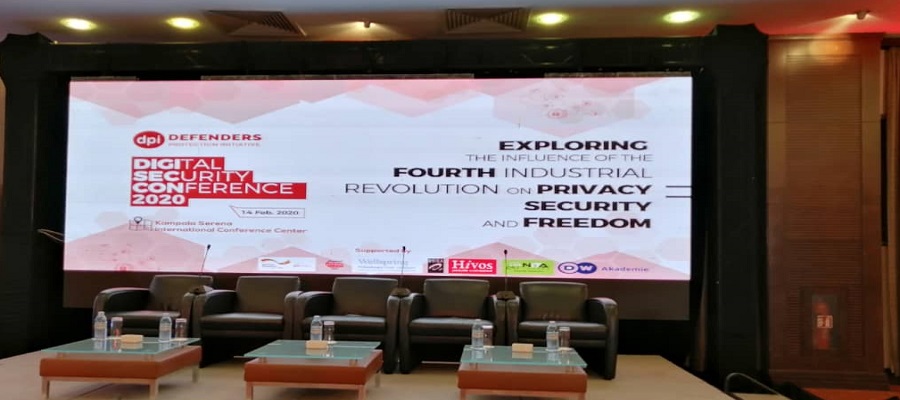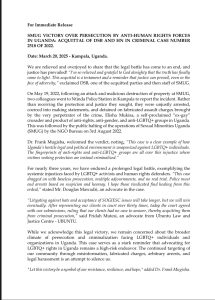Defenders’ Protection Initiative (DPI), under the theme “Exploring the Influence of the fourth industrial revolution on Privacy, Security, Human Rights and Freedoms” recently held its 3rd annual Digital Security Conference at Kampala Serena International Conference Center. The meeting was attended by several representatives from different LGBTIQ+ and sex work led organisations, human rights activists, donors and journalists.
Yona Wanjala, the team leader at DPI said the conference was intended to equip participants about digital protection and its role in the civil society sphere. He also explained that the conference was designed to shed light on the negative impacts of the digital world (and how to navigate them) like rampant hacking, heightened hate speech and online violence which encroaches on to one's freedoms, privacy and security.
The discussions revolved around the Data Protection and Privacy Act 2019 and its impact on digital security to available fourth industrial technologies as well as reflection on the trends of online violence and how these can be mitigated.
There was a general concern for the need to speed up regulations within the current law since delays in enactment were prompting continued exploitation use of private citizen’s personal data through data mining.
Other inconsistencies that were highlighted include the lack of an independent institute for personal data protection which is currently being created under the supervision of the Ministry of ICT, huge risks of data theft which compromises one' security. There is also no protection of the data owners in regards to withdrawal of consent and tracking in addition to uncertainty on where the personal data is stored or who it is shared with due to links of data bases among government entities. Some government entities also have control over communication systems to request at their will any data when it comes to matters of "national security"- a policy that was labelled dangerous.
CSO, NGO and CBO entities were encouraged to find the best possible ways of securing their data to avoid such damage and ensure criticality in reading all terms and conditions before signing any documentation on data collection both online and offline. It was also suggested that there should be sensitization campaigns on data protection laws, policies and regulations to make data owners aware of their rights in regards to consent and sharing of personal data. Some of these rights include right to information, right to stop processing and collection of one's personal data though this isn't absolute, right to retain one's naturalness and demand the stoppage of automated decision making by artificial intelligence, right to request for the rectification of data, right to be forgotten through erasure or destroying personal data.
The final panel discussion highlighted trends, manifestations and solutions to address technology assisted violence in relation to hate speech and freedom of expression. Elizabeth Kemigisha, a feminist and lawyer at FIDA mentioned that the growing normalization of women online is a depiction of what happens in reality- something that can't be ignored. "... Even though they are reported or abused, this violence against women continues from one woman to another with no particular sanction to the abuser," she said.
Other trends that were emphasized include change in media reporting of violence perpetrated against women which is now at the forefront, various online fronts and content for African women in championing women's rights despite the backlashes and under representation and the increased shift of violence against women in private interaction spaces away in comparison to public domains.
Sandra Riza, an LGBT+ activist and Executive Director at HER Internet said with absence of tangible proof as an indicator of violence required by law enforcement officials together with the quietness and absence of the state to step up, have pushed for violence online to continue as there is no system to hold the perpetrators accountable since the applicable laws are also "ancient".
Some of the interventions that were suggested are accountability for one another on online platforms, implementation of available cyber and digital laws against technology based violence, state involvement in all issues of every citizen including minority groups and intentional deliberate action to tackle violence against women online which should be a responsibility for all. Digital security clinics are also to be established across the country.
DPI was applauded for holding the Digital Security Conference three years in a row as well as its work in championing the safety and security of human rights activists in Uganda.




